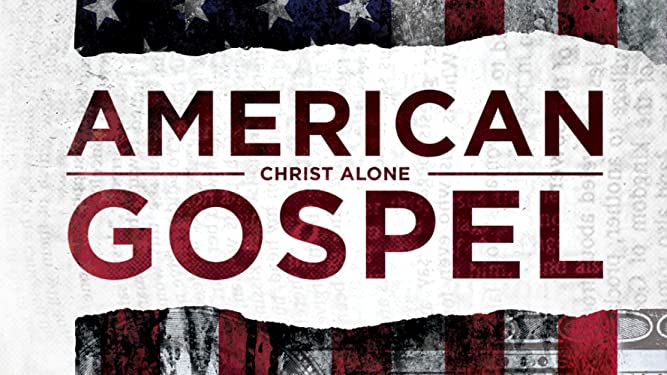How Reading Aristotle Frees Us from John Piper and Albert Mohler’s Complementarianism
This article originally appeared on July 11, 2020 on Medium and was edited on September 6, 2021 to include recent quotes from John Piper.
After growing up in the patriarchal world of the Independent Fundamental Baptists where men would sit on couches watching football and waiting to be served their dessert while maintaining absolute control of everyone in the home, the Calvinistic, complementarian world of conservative evangelicalism felt like a breath of fresh air. We figured that we had left the chains of legalism for the freedom of grace. We were Christ-centered and living out the gospel.
Ephesians was one of our favorite books. In chapters 1–3, we were given the doctrine of salvation with plenty of Calvinistic buzzwords. Chapter four began to transition into application. And then chapters 5–6 gave us our applicational framework. Husbands pictured Christ as the head of their wives, while wives pictured the church in total submission. Fathers pictured our Heavenly Father in disciplining their kids, while kids pictured God’s children in obedience. And masters were to picture our Heavenly Master in how they treated their slaves, while slaves were to picture God’s slaves in total obedience with fear and trembling and singleness of heart.
These applications of the husband over the wife, the father over the children, and the master over the slave allowed us to keep men in charge of everyone, with of course a reminder to do it nicely. It cemented God’s vision for marriage being between one man and one woman. And because it flowed from the theology of Ephesians 1–3, it felt like grace.
Whenever egalitarians would point out that this hierarchy of male power fosters an entitlement amongst men that feeds abuse, we would simply acknowledge that there are some abuse problems out there, and then say that to ignore the biblical teaching of Ephesians 5–6 would only make the problems worse. The true complementarian, according to us, would rule with love.
Of course, while men being in charge of their wives and children didn’t seem so shocking to us, there was that nagging issue of the master over the slave. But in a 1998 interview on “Larry King Live,” Albert Mohler wasn’t so bothered. He said, “If you’re a slave, there’s a way to behave.” Then when asked if he would criticize the slaves who tried to escape, Mohler said, “I want to look at this text seriously, and it says to submit to the master. And I really don’t see any loophole here as much as, in terms of popular culture, we’d want to see one.”
On May 15, 2020, Mohler recanted his position, saying, “It sounds like an incredibly stupid moment, and it was. I fell into a trap I should have avoided, and I don’t stand by those comments. I repudiate the statements I made.”
While I’m thankful that Mohler repudiated those statements, I’m also confused about his inconsistent application of the text. He simply can’t pick and choose which of those three applications he’s going to take literally, and which he’s going to pretend isn’t there. While I disagree with his literal interpretation from 1998, at least he was being a consistent complementarian back then.
For the complementarians who want to take the text literally, but have a seed of humanity inside that does not allow them to literalize masters and slaves, they tend to generalize it to employers and employees or talk about how Roman slavery was different than American slavery. But again, that’s not what the text says.
The author of Ephesians clearly has a slavery problem we have to deal with. And if we’re going to literalize husbands and wives and fathers and children, then we can’t pick and choose not to literalize masters and slaves.
But what if there was more to the conversation?
Peter Enns likes to say that reading the New Testament Letters is like reading someone else’s mail. We’re only reading half of the conversation, over 2,000 years removed.
I would suggest that reading Ephesians 5–6, not through a modern complementarian lens, but through the lens of the ancient household codes, would free us from this awkward power dynamic that Albert Mohler’s complementarianism traps us in.
The ancient household codes were referred to by such philosophers as Aristotle and Socrates.
Aristotle said, “The male is by nature superior, and the female inferior; and the one rules, and the other is ruled. Of household management we have seen that there are three parts — one is the rule of a master over slaves, another of a father, and the third of a husband. A husband and father rules over wife and children.”
In other words,
-The husband rules over his wife.
-The father rules over his children.
-The master rules over his slave.
While Aristotle and Socrates both worked within the male dominated hierarchy, they differed on how the males were to rule and how the women, children, and slaves were to submit.
When the author of Ephesians talked about those exact three contexts, it only makes sense to me that we see them as entering into the Greco-Roman household code conversation and turning it toward Christ. The Bible did not come up with those categories. The Greco-Roman culture set up those categories. Ephesians simply incarnated the gospel by starting where they were and showing how Christ could transform them from where they were.
Even John Piper talked about the issues of hierarchy here in a recent article praising the virtues of the slaveowner Jonathan Edwards. Piper said that Edwards owning slaves “is not surprising, but rather fits with his view of hierarchy in society—that is, that some people properly have more authoritative roles, while others have more servant roles. George Marsden says, in fact, that ‘we can consider Edwards’ attitudes toward slavery in the context of his hierarchical assumptions. Nothing separates the early eighteenth-century world from the twenty-first century more than this issue.’”
Piper is exactly right to point out that the fundamental problem here is one of hierarchy. This is the point I’ve been making over and over again. Hierarchy separates peoples into roles of authority and service, which inherently categorizes people into abusive power dynamics.
Piper also provides a biblical conversation about the relationship between masters and slaves by a series of verses, most of which come from 1 Corinthians 7, Ephesians 4-6, and Colossians 3-4. Piper then claims that, according to these passages, “The roles (of master and slave) are so transformed by Christian reality that what they once were is no more. But the social shell seems to remain… . What we might call the social structure (or shell) of this institution is left in place in the New Testament. But for Christians, it was only a shell—a social structure whose inner reality was radically new.”
What Piper fails to recognize, however, is that set alongside the master and slave relationship in 1 Corinthians 7, Ephesians 4-6, and Colossians 3-4 is the husband and wife relationship.
Each relationship was a hierarchy with the man having the authority. Piper recognizes within the master/slave hierarchical relationship that some “have more authoritative roles, while others have more servant roles.” Of course, he doesn’t mention that the “some” who had authority were men. And Piper also recognizes that the hierarchical structure itself was merely a “social shell,” a “social structure,” and “only a shell,” that had been completely subverted by the Bible.
So if the broader cultural conversation of the Roman Empire wove husband/wife, father/children, and master/slave into a single thread, and if each of the passages Piper cites bring those three relationships into a single conversation, then why doesn’t Piper recognize that the same things he observes about the master/slave relationship should be applicable to the husband/wife relationship?
According to Piper, the husband has an authoritative role, while the wife has a submissive servant role. According to Piper, men are divinely ordained to be higher on the hierarchy than women in the home, in the church, and in society. When it comes to men and women, Piper doesn’t think these hierarchies are merely “social shells.” Instead, he justifies them as “biblical manhood and womanhood.”
What I’m saying is that we need to recognize the hierarchy in gender and marriage roles just like we recognize the hierarchy in master and slave roles. Thank God we have been growing out of master and slave hierarchies. But now it’s time to cast off the social shell of complementarian gender roles in marriage.
John Piper cannot pick and choose to dismantle hierarchy in master/slave relationships while picking and choosing to maintain hierarchy in husband/wife relationships. The Epistles, just like Plato and Aristotles letters, weave them into a single conversation.
That single conversation is ultimately designed to point us to our common relationship in God.
In Ephesians 3:14–15, the author begins to introduce their application of the household codes in the context of their theology saying, “For this reason, I bow my knees before the Father, from whom every family in heaven and on earth takes its name.”
The Roman “Pater familias” was the head patriarch, the “father of the family,” or the “owner of the family estate.” By the author of Ephesians invoking God as the head patriarch, they meant that God is the “Great patriarch over every family in heaven and on earth.”
So with God who relates to us in the gospel as the head patriarch, here is how the author of Ephesians re-envisions the ancient household codes.
-The husband loves and mutually submits to his wife.
-The father brings up his children.
-The master enthusiastically serves his slave.
Ephesians is neither creating those hierarchies, nor affirming them. Instead, it is entering into them to subversively evolve them toward a love that flows from God.
As we apply this to our lives, we must be careful not to literalize and carry over the household code categories of husband and wife, father and children, master and slave because by doing so, we are assuming that God’s wisdom was in the ancient man-made household hierarchies rather than in the transformation of those relationships through the gospel, and we also make room for abuse of others.
Piper is right that this is the biggest difference between the 18th and 21st centuries. But he fails to explain how hierarchical relationships described in the Bible were born out of an ancient hierarchical cosmology. He fails to recognize how modern cosmology redefines how relationships exist in a way that can apply the liberation Paul was promoting in a much more relevant way, having been freed from the social shells of false hierarchical cosmologies altogether. And Piper fails to systematically dismantle hierarchy across the relationships that the Bible pairs together within the ancient conversation of the household codes. Instead, he promotes hierarchy in the areas where he holds power.
Instead, we must ask how the gospel brings the unity, community, and love of God to our modern day household contexts in a way that flows from the Father of all of our families.
Of course by doing this, we lose the male dominated hierarchies that John Piper and Albert Mohler’s complementarianism depends on. And in losing them, we also potentially open ourselves up to at least considering alternate definitions of the family beyond heterosexual monogamy between two people. The loss of such power and clarity will probably keep many complementarians from even considering Ephesians 5–6 in light of the ancient household codes.
On the other hand, by reading Ephesians 5–6 within Aristotle’s household code context, we are now freed to acknowledge the disturbing power dynamics that were inherent to the code, without having to pick and choose what we do with the text. More importantly, we are now freed to consider every family in heaven and on earth as carrying the name of God. This mystical union with all goes even beyond humanity to St. Francis’s connection with the entire universe being our brothers and sisters. And to me, that’s a far more beautiful good news than waiting for my dessert to be brought to me while the football game starts.










Leave a Reply
Want to join the discussion?Feel free to contribute!